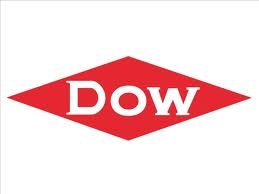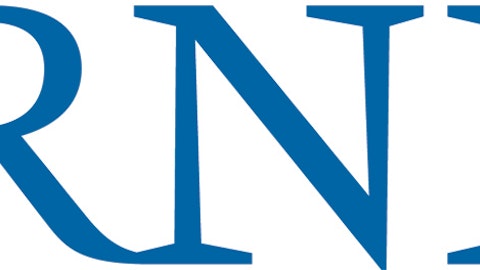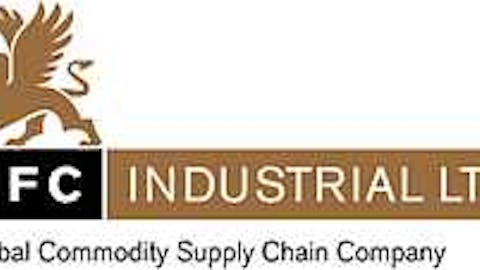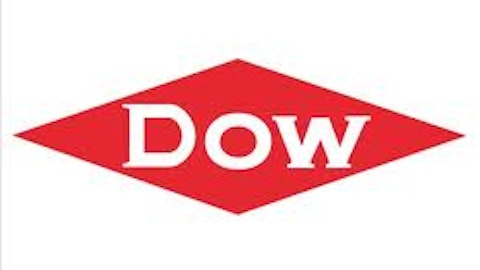It’s tough to judge — or at least to quantify — managerial competence. Yet, I’ve long described myself as a “management freak,” in that I attempt to mix metrics with a difficult-to-define visceral feeling about the strength of the team at the controls of a company.
I won’t attempt to define that mixture further. However, I will note that, as last week came to an end, The Dow Chemical Company (NYSE:DOW) joined its rival E I Du Pont De Nemours And Co (NYSE:DD) among the companies that have traditionally demonstrated capable managements, but are being forced to do battle with global economic headwinds. As a result, Dow, like DuPont earlier, presented results for the final quarter of 2012 that were less than stellar.
Big items
For the quarter, Dow posted a loss of $716 million, or $0.61 per share, a far worse result than the loss of $20 million, or $0.02 a share, for the final quarter of 2011. However, if you back out items for both periods, the big Michigan company earned $0.33 per share in the most recent quarter, compared with $0.25 per share a year earlier. Analysts who follow the company had anticipated $0.34 on the per-share line for the final quarter of 2012. Quarterly revenues reached $13.92 billion, down 1% year over year, but comfortably higher than the consensus $13.67 billion expectation.
The big difference between the company’s reported and adjusted earnings resulted primarily from charges related to a restructuring program announced in October. Under the terms of that program, the company is cutting about 2,400 jobs and mothballing about 20 plants. This restructuring is expected to result in, among other things, annual savings of approximately $500 million annually by the end of next year. In the meantime, however, it resulted in a sizable charge of $990 million for the quarter.
As CEO Andrew Liveris said in assessing Dow’s recent results: “The second half of 2012 saw significant deterioration in the markets we serve, particularly in China. In response, Dow identified and took aggressive action to mitigate the effects of a slow-to-no-growth global environment — by deploying cost and cash flow levers and by continuing to prudently manage our portfolio and prioritize growth investments.”
Results were mixed on a geographic basis. For instance a 5% growth rate was recorded in Asia Pacific, offset by a decline of precisely the same magnitude in Western Europe. Simultaneously, the two Americas each expanded by precisely 1%.
Prepping for an LNG war
But while the global economy is anything but strong, Dow and a host of other basic industrials companies are benefiting from historically low prices for natural gas, their primary feedstock. At the same time, they’re clearly gearing up for a fight with those in a movement to turn the U.S. into a significant processor and exporter of liquefied natural gas, or LNG. Their obvious belief is that a sizable U.S. LNG push would drive the nation’s gas prices higher and remove the advantages they are currently receiving.






